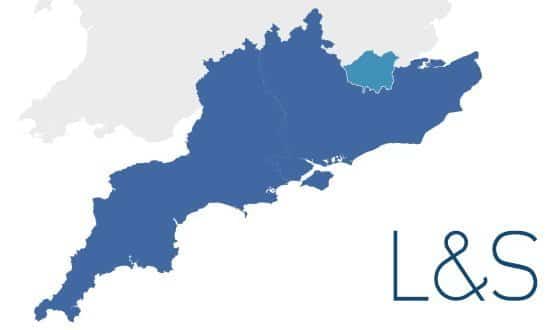Two down, three to go

The collaborative approach to procuring replacement electronic patient records in London and the South has resulted in an orderly exit from National Programme for IT contracts with relatively few surprises.
Fifteen acute trusts and more than 30 community and mental health trusts were live with EPRs delivered by the programme when plans were put in place to replace them three years ago.
The systems, delivered by BT, were Cerner Millennium for acute trusts and Servelec’s RiO for community and mental health trusts. With the expiry of these national contracts looming in October 2015, two collaborative frameworks were launched in 2012 to help them procure new systems.
Perhaps unsurprisingly, trusts have mostly stuck with what they have got. This is especially true in the acute space; some community and mental health providers have decided to switch while they have the chance.
Still the Millennium
The London Procurement Programme framework was used by all six Cerner users in the capital to re-procure the Millennium system, as well as by Surrey and Sussex Healthcare NHS Trust and Oxford University Hospitals NHS Trust, which were part of the southern group.
Of the remaining seven Cerner users in the South, two more – United Hospitals NHS Trust and Milton Keynes University Hospital Foundation Trust – chose to stick with the system via individual OJEU procurements.
Weston Area Health NHS Trust has signed a £3.2 million deal to continue using the system until its "imminent" acquisition by Taunton and Somerset NHS Foundation Trust, which plans to go live with IMS Maxims’ newly open source EPR in July.
North Bristol NHS Trust has chosen to move to CSC’s Lorenzo, which it plans to switch on in October, and Buckinghamshire Healthcare NHS Trust will implement System C’s Medway EPR in the autumn.
Surrey and Sussex Healthcare NHS Trust director of information and facilities Ian Mackenzie describes a long tradition of the southern Cerner trusts working together to share experiences and says this helped when it came to moving off national programme contracts.
“We all talked to each other and the collaborative framework was very helpful because we shared experience and shared details about contract negotiations. I think that benefitted both parties and we continue to work together still, although we are on separate contracts,” he tells Digital Health News.
Flying home to RiO (mostly)
The community and mental health space has been more adventurous, branching out to adopt systems from TPP, Emis and Advanced Health and Care – and saving themselves a reported £110 million in the process.
Thirty-eight trusts have so far used the 2015 CIS Consortium framework to re-procure systems, of which two are actually in the North, Midlands and East, where national contracts expire later. Of those, 20 have stuck with Servelec’s RiO, eight have chosen Advanced Health and Care and five each have picked Emis and TPP.
Consortium chair Peter Gooch says the framework approach saved around £80 million on the cost of an EPR versus what the Department of Health was paying, and the trusts saved a further £30 million by undertaking mini-competitions.
Advanced Health and Care managing director Jim Chase believes the London framework was helpful in providing a broad definition of functional requirements and understanding of the contractual arrangements for both companies and NHS providers involved.
Taking their time
When the London tender was issued, there was considerable concern about whether the procurement could be run in time, the impact on the market, and the ability of trusts to move data centres before their national contracts expired.
The actual experience of London – and the South – shows that orderly transitions off big contracts can be made by trusts working collaboratively and using framework contracts.
Geoff Segal, general manager of Cerner UK, says: "With financial challenges facing the NHS, and organisational needs to make end of the national programme procurement decisions within defined timescales, the collaborative framework approach [has been] a good option.
"It has enabled the market place to provide confidence in the efficient completion of the supplier selection and contracting activites. The use of a collaborative framework as a procurement vehicle allows trusts to get to final supplier decisions quicker than other procurement approaches."
However, the impact on the market – and so, perhaps, on the innovation secured by these trusts – has been small. And it has taken three years.
In the North, Midlands and East, around 266 organisations will be impacted in some way by the end of the national programme, for which contracts end in almost exactly a year, on 7 July 2016. Last November, EHI Live 2014 was told that 186 of them had yet to take any action.
With roughly 180 trusts needing to procure around 650 systems, the potential for suppliers is massive, but the scale of what needs to be achieved within an ever shortening timeframe makes the task seemingly impossible.
The Health and Social Care Information Centre has been “chipping away” at making trusts aware of the problem – in January, Digital Health News was told that the number of organisations yet to draw up a transition plan was down to 60.
However, in contrast to the collaborative approach taken in London and the South, NME trusts are taking a variety of approaches, including using the LPP framework and a newer framework set up by NHS Shared Business Services, or looking to procure independently.
Managing director of Advanced Health and Care Jim Chase says that with London and South wrapped up, suppliers are starting to look towards the NME, but: “It’s almost surprising that there aren’t more conversations going on.”
He warns: “One almost has to assume that quite a lot of trusts maybe haven’t got their heads around how tight the timescales really are.
“Procurement in itself takes time, however you do it, then deployment windows are quite short. So I would say there are quite a lot of trusts that need to start moving and get their plans in place pretty quickly.”
Time for the north to rock:
Emis’ director of community, children’s and mental health Martin Bell believes that some of the 180 NME trusts will be able to enact contract extensions beyond 2016, but the vast bulk will need to re-procure. At the same time, nearly 2000 GP practices will need to re-procure their GP systems.
“What was unique about London and the South was the large number of organisations all under a single framework, all signed up to one set of terms and conditions and contracts,” he says. "It's a very different landscape in the rest of England. There’s a far greater mixture of procurement mechanisms."
Servelec chief executive Alan Stubbs says that while the company had to defend every live RiO site in London and the South, in the NME it will just target those it believes it has a good chance of winning.
"We’ve moved from defending in the south to attacking in the north,” he says.
Read more about the attack on the North in Thomas Meek’s insight feature later in the week.




